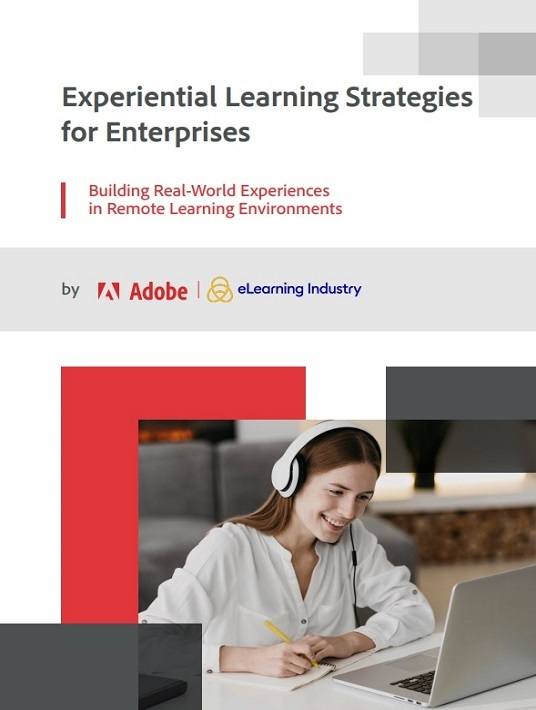What Is Experiential Learning?
Though many organizations find Experiential Learning to be a challenging concept, technology has made it possible to implement with great success. Stick around until the end to figure out how Experiential Learning can indeed be implemented in remote training environments.
Experiential Learning is a rather broad term but, at its core, it defines any type of new skill and knowledge acquisition that comes from personal experience and reflection. It focuses on the idea that the best way to acquire new information is by linking it to experiences. These experiences can then be used to help learners recall the skills when they need them in real-life situations. There are many learning models designed to leverage Experiential Learning – problem-based, cooperative, hands-on, and project-based learning. But what makes these models truly experiential is that they not only require learners to do but also to become actively involved in the activity and reflect on its results.

eBook Release
Experiential Learning Strategies For Enterprises: Building Real-World Experiences In Remote Learning Environments
Discover how to execute experiential learning strategies for enterprises that enrich the experience and facilitate knowledge sharing.
The 4 Elements Of Experiential Learning
Everyone talks about Experiential Learning and implementing it to boost training ROI, but do we really know what it involves? Below, we talk about the 4 elements that define and are inextricable parts of the Experiential Learning experience.
1. Direct Hands-On Engagement
Experiential Learning starts with hands-on interaction. The learner must be willing to engage with the training activity and examine it personally to either comprehend this new experience or interpret an existing experience in a new way. This is an active stage for learners, and it requires minimal interventions from the instructor. If the learner requires guidance, the instructor should provide it discreetly and in no way take over the activity.
2. Structured Reflection
The next stage involves the reflection element that we mentioned above. Here, learners use the lens of their personal experience to reflect on the training experience and figure out what it involves and what it does not. Reflection can happen on an individual level, through questioning or processing, or on a team level, through group discussions and analyses. For example, if learners are working on a sales-pitch-gone-wrong scenario, this is when they identify potentially problematic behaviors.
3. Abstract Evaluation And Assessment
Moving on, learners use the observations they previously made to form new ideas and modify the experience. In other words, learners assess the situation and conceptualize what actions need to be taken to reach a different outcome. In this stage, learners form theories based on their own experiences and reflections (in conjunction with those of the group) and start drawing conclusions that will affect their responses in real-life future scenarios. Using the same example as above, this is when the learner decides what changes they would make to ensure a successful sale.
4. Real-Life Connections And Consequences
The final and most important step is, of course, connecting theory to practice. After having reflected on and conceptualized the experience in a safe environment, learners must gauge the positive or negative consequences of their newly acquired knowledge. Were their conclusions right, or do they need to adjust them? The element of active experimentation can happen immediately after Experiential Training, or after an extended period of time. What is important is that learners can recall information as well as the Experiential Learning process if changes are required.
Is There A Place For Experiential Learning In Remote Training Environments?
We know what you’re thinking: can all the elements of Experiential Learning mentioned above really translate into a virtual environment? Although there are several variables to this question, the short answer is – Yes! Technology has granted us ever-increasing tools and solutions that bring virtual experiences closer to real life than ever. With robust video conferencing software that transforms online communication and collaboration into life-like simulators, it is now possible to offer learners a comprehensive Experiential Learning experience. Understandably, such an undertaking might seem challenging and complicated for a business. However, specialized providers can help.
Download the eBook Experiential Learning Strategies For Enterprises: Building Real-World Experiences In Remote Learning Environments today to launch programs that leave a lasting impression and maximize ROI.

